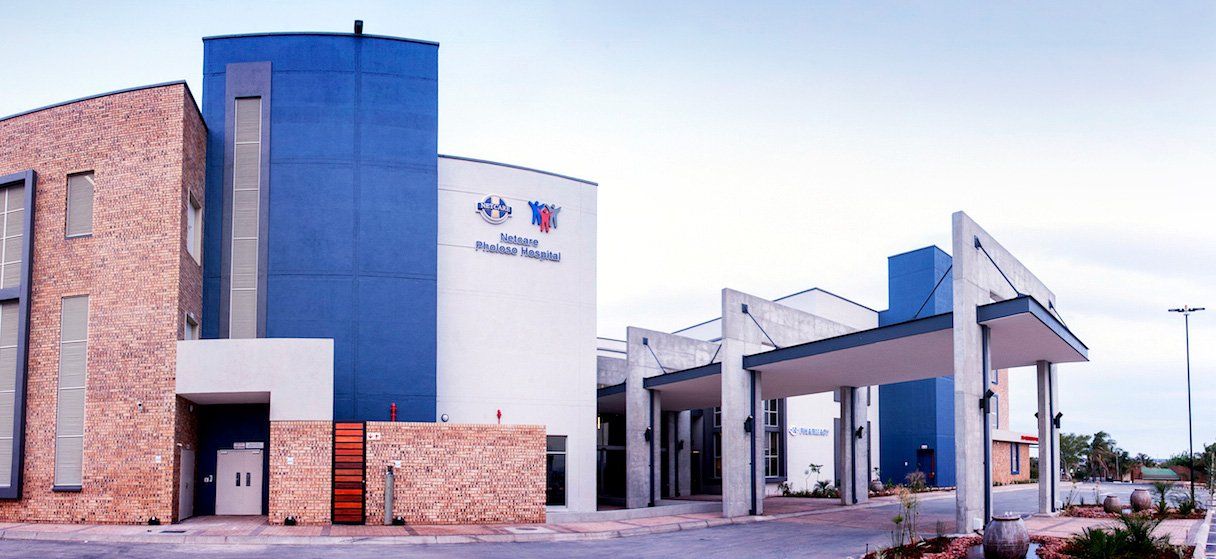Private and public health collaboration brings hope to 15 Limpopo boys
Drickus Maartens • December 4, 2019
Initiative succeeds in simultaneously training doctors and treating deserving children
A collaboration between the private and public health sectors in Limpopo has not only brought to fruition a project in which 15 boys from indigent families in the province benefitted from a free surgical procedure but has also served as a training opportunity for local doctors.
Organised by paediatric and neonatal surgeon, Dr Elliot Motloung, and hosted by Netcare Pholoso Hospital in Polokwane on 28 and 29 November, the minimally invasive Fowler-Stephens procedure to reposition undescended testes that cannot be detected by a routine medical examination alone was demonstrated live to paediatric surgeons and urologists. This condition is known in medical terms as non-palpable undescended testes.
The project, which was made possible by a collaboration between Netcare Pholoso Hospital, the Netcare Foundation and Mankweng Hospital, simultaneously enabled all 15 boys to benefit from the procedure, which was done for free.
“When I returned to Limpopo recently to practice in the province, I noted that cases of boys born with non-palpable undescended testes were often being referred to Gauteng hospitals for treatment,” says Dr Motloung, who is the director of paediatric surgical services at both Mankweng and Polokwane hospitals, and a senior lecturer at the University of Limpopo School of Medicine. He also practises at Netcare Pholoso Hospital.
“Given that these boys could well develop complications from the condition and that between 4% and 10% of boys whose undescended testes go untreated will develop testicular cancer, I thought that it was critical to find ways to address this challenge within the province. An educational symposium that both met the need of training local medical practitioners in the diagnosis and treatment of the condition, while at the same time providing free treatment locally to these young patients, struck me as a sound starting point,” he adds.
The 15 laparoscopic, or minimally invasive, procedures were conducted by Dr Motloung and three other highly experienced laparoscopic surgeons, namely Dr Hansraj Mangray, Dr Martin Phakula, and Dr Y Hawu, over the two days. Dr Motloung says that the training symposium, which was accredited as a continuing professional development (CPD) event, was the first of its kind to be held in Limpopo and was a great success, with a number of doctors who attended the first day having expressed their appreciation of the opportunity. MEC for the Limpopo Department of Health, Phophi Ramathuba, visited the hospital and patient wards while the symposium was in progress.
“Netcare Pholoso Hospital and the Netcare Foundation covered the theatre, hospital and other costs associated with the 15 procedures and sponsored the symposium. The initiative was also well supported by medical product and equipment suppliers,” says the hospital’s general manager, Fabion Bennett.
According to Dr Motloung, when a male baby develops in the womb its testicles form in the abdomen and then usually descend into the scrotum shortly before birth. However, in some babies either one or both of the testicles fail to descend into the scrotum before birth, a condition called cryptorchidism.
“In such cases the testicle may remain in the abdomen or only partially descend into the groin area. It is not fully understood what causes cryptorchidism, but it is one of the most common disorders of the genitals in male newborns. Some 20% of these babies will most probably need surgery to reposition the testes, and this should be done at an early age for the best results,” he explains.
“The children who underwent the free procedure were all referred to me for medical examination and investigation, ultrasound study and blood work at Mankweng Hospital. The patients were all prepared for surgery at Mankweng Hospital before being transferred to Netcare Pholoso Hospital
for the procedure.
“We used a Fowler-Stephens laparoscopic procedure, guided by a tiny camera, to treat the condition in the children. It takes approximately 30 minutes to reposition the testes from the abdomen and into the scrotum, using this minimally invasive ‘keyhole’ procedure,” explains Dr Motloung.
“We are most grateful to Dr Motloung for driving this remarkable project, which is an excellent example of the possibilities of public private collaboration for the benefit of the patient,” says Jacques du Plessis, managing director of the Netcare hospital division.
“Netcare is proud to have been associated with this initiative, which demonstrates how the public and private healthcare sectors can join hands, together with dedicated medical practitioners, to meaningfully tackle health challenges affecting our children,” concludes Du Plessis.
About Dr Elliot Motloung
Dr Elliot Motloung completed his undergraduate medical degree at the University of the Free State in 2007. He did his internship at Ladysmith Provincial Hospital in KwaZulu-Natal and Boitumelo Provincial Hospital in the Free State, and thereafter enrolled with the South African Military Health Services to do his community service at the SA Military School of Engineering in 2010.
In 2011, Dr Motloung commenced working in the Department of Paediatric Surgery at the East London Hospital complex, before commencing his registrar’s training programme in paediatric surgery at the University of the Free State in 2013.
Dr Motloung has a particular interest is in minimally invasive thoraco-abdominal surgery and paediatric trauma and is currently the director of Paediatric Surgical Services at both Mankweng and Polokwane hospitals, as well as a senior lecturer at the University of Limpopo School of Medicine. Dr Motloung also practises at Netcare Pholoso Hospital.













